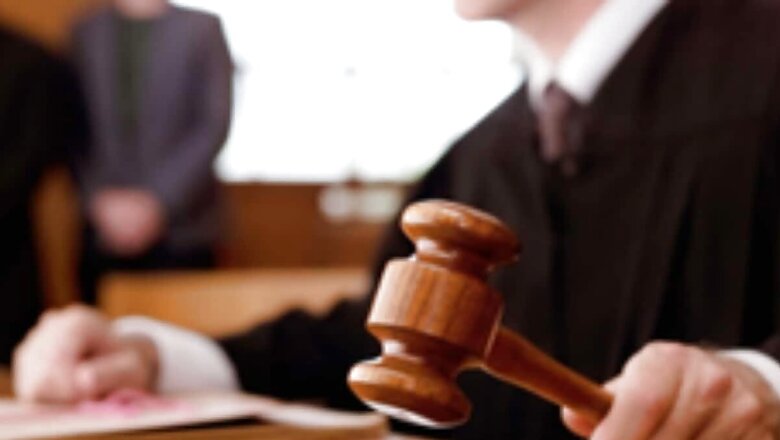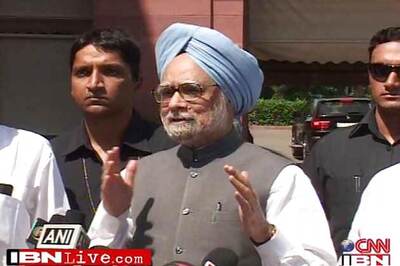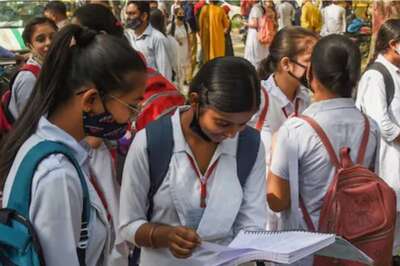
views
The Kerala High Court has dismissed a petition seeking to quash criminal proceedings against a man who alleged that a Muslim woman violated Shariat law by shaking hands with an adult male during a public event. The court framed the key issue: “If a Muslim girl gives a handshake to an adult male, and the girl who is giving the handshake and the adult who is accepting the handshake have no problem, can a third person can say that the Muslim girl violated religious beliefs?”
The court, presided over by Justice PV Kunhikrishnan, while refusing to quash proceedings against the man accused of violating Section 153 (provocation with intent to cause a riot) of the Indian Penal Code (IPC) and Section 119(a) of the Kerala Police Act, dealing with the punishment for atrocities against women, stated that “no religious belief is above the Constitution and the Constitution is supreme”.
The petitioner had accused a Muslim woman, the second respondent, of violating Shariat law and committing adultery by shaking hands with Kerala’s former finance minister Dr TM Thomas Isaac during a public event. The incident occurred when the complainant, a second-year law student at the time, participated in an interactive session with Dr Isaac at her college. As part of the event, she shook hands with the minister while receiving a gift. The handshake was captured by media outlets and broadcast on various channels. Days after the event, a Facebook post and a WhatsApp video, allegedly created and circulated by the petitioner, accused the woman of breaking Shariat law by touching a man who was not related to her. The defamatory content, according to the complainant, brought disgrace to her and her family, leading to the initiation of criminal proceedings against the petitioner.
The court delved into the cultural and religious aspects of handshakes, noting that while “shaking hands” is a traditional gesture conveying respect and professionalism, in Islamic practice, physical contact between unrelated members of the opposite sex is generally considered haram (forbidden). However, the court emphasised that religious beliefs are personal, and Islam, like other religions, does not impose compulsions on individuals.
The court noted: “One cannot compel another to follow his religious practice by the latter. Religious practice is a personal choice of every citizen of this country… all persons are equally entitled to freedom of conscience and the right freely to profess, practice and propagate religion. Propagate religion does not mean that the religious practice should be imposed on others. Every citizen has a right freely to profess and practice his or her religion.”
Citing Quranic verses such as Surah Al-Kafirun (109:6), which states, “For you is your religion, and for me is my religion,” and Surah Al-Baqarah (2:256), which asserts, “There is no compulsion in religion,” the court highlighted that religion is a matter of personal choice. The court questioned why the petitioner, a third party, felt compelled to impose his interpretation of religious principles on the second respondent, especially when she had voluntarily engaged in the handshake.
The court further stated that the Constitution is supreme, and no religious belief can override it, while emphasising the duty of the society to protect the personal choice of the woman. “It is alleged that the video is circulated and the said sequence of her handshake was also displayed in the video. A young brave muslim girl comes forward and says that, it violates her personal freedom of religious belief. In such situations, our constitution will protect her interest. Moreover, it is the duty of the society to support her,” the court stated.
The court concluded that there was no abuse of legal process in this case, and therefore, it refused to invoke its extraordinary jurisdiction to quash the proceedings. The court ruled that the case must proceed to trial to determine whether the petitioner’s actions constituted offences under Section 153 IPC and Section 119(a) of the Kerala Police Act.
The high court remarked that the trial court would decide the case on its merits. If the petitioner is innocent, he can be acquitted following due legal procedures. With this, the court dismissed the petition, directing the trial court to expedite the case in accordance with the law.



















Comments
0 comment